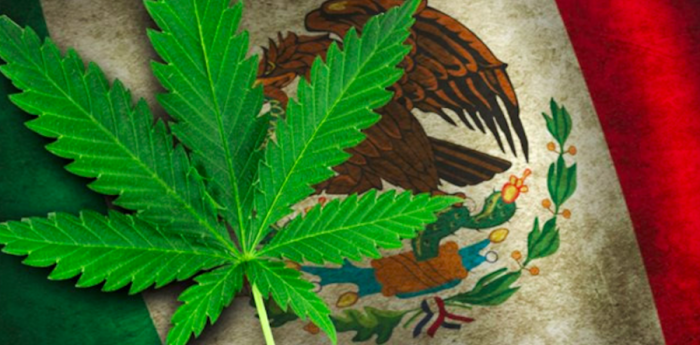Mexico’s draft cannabis legalization: Foreign investors would be unable to invest
In the event that the Senate does approve Mexico’s draft cannabis legalization, the plant will be legalized for recreational purposes, scientific research, industrial use, pharmaceutical and therapeutic positive care, as well as private consumption
It looks as though Mexico could become a cannabis-friendly state anytime now. The foundation for what is expected to become the largest adult-use market in regards to population is being prepared.
Under the terms of the proposed law for cannabis legalization in Mexico, adult-use cannabis, medical cannabis and industrial hemp use will become legal. However, lawmakers in the U.S. territory have drafted a set of cannabis legalization laws that would impose limits on foreign investment.
Mexico’s draft cannabis legalization law would also ban vertical integration outright.
Things to know about Mexico’s draft cannabis legalization law
In the event that the Senate does approve Mexico’s draft cannabis legislation, the plant will be legalized for recreational purposes, scientific research, industrial use, pharmaceutical and therapeutic positive care, as well as private consumption.
Mexico’s draft cannabis legalization focuses on “fair regulation”, with the language stating that cannabis will be regulated to prioritize human rights, sustainable development and public health. Mexicans will be allowed to grow up to four flowering psychoactive plants per adult. A maximum of 20 plants can be grown per household of five adults.
Predictions suggest that Mexico’s adult-use cannabis market would surpass that of Canada and Uruguay. Both countries have legalized cannabis in its entirety, with Uruguay being the first to end pot prohibition.
An overview of license rules as per Mexico’s draft cannabis legalization
According to Mexico’s draft cannabis legislation, a number of different licenses would be up for grabs. They include cultivation, sales, export, import, auxiliary and transformation licenses. Licenses would be non-transferable, thus eliminating the chances of mergers and acquisitions.
Moreover, since vertical integration would be prohibited under Mexico’s draft cannabis legislation, license holders would be restricted to obtaining one license type. In regards to hemp manufacturing and processing, licenses will not be bestowed upon individuals/organizations. Rather, permits would need to be applied for.
Industry could take years to transpire after Mexico’s draft cannabis legislation is approved
A document uploaded on the Senate website outlines Mexico’s draft cannabis legislation. It is currently awaiting review by the commissions that deal with issues related to health, justice and legislative studies. The commissions are anticipated to introduce the proposal in front of the Senate for a vote any day now. Amendments are expected prior to its approval; if it is approved.
A Mexican Cannabis Institute would be established as per Mexico’s draft cannabis legislation. It would be responsible for implementing the new law, as well as for providing industry oversight and regulation. The draft language clearly states that the Institute would need to be launched by January 1, 2021. This would mean that commercial cannabis business applicants won’t be able to apply for participation in Mexico’s legal weed industry for up to a year after the law is implemented; if it is enacted soon.
Although cannabis could be legalized in Mexico any day, the market may take years to fully flourish. Current restrictions on vertical integration, foreign investment/ownership and license retail may deter outside investors, thus starving the industry of the essential support it needs to grow. Nonetheless, if and when cannabis legalization is enacted, Mexico’s population of 125 million will put the U.S. territory in a prime position to attract plenty of investment and consumer attention.








